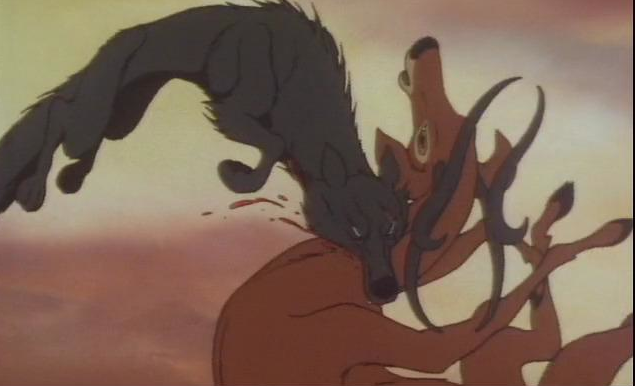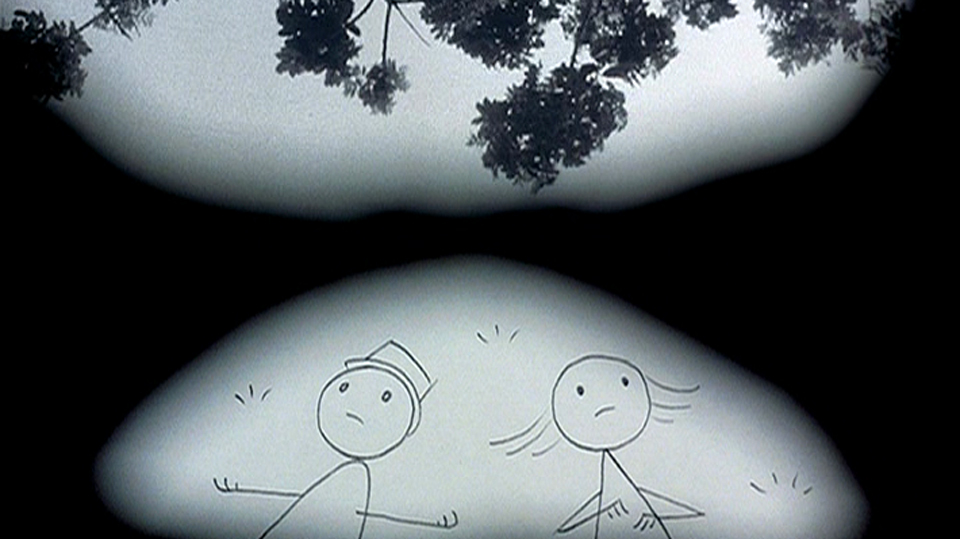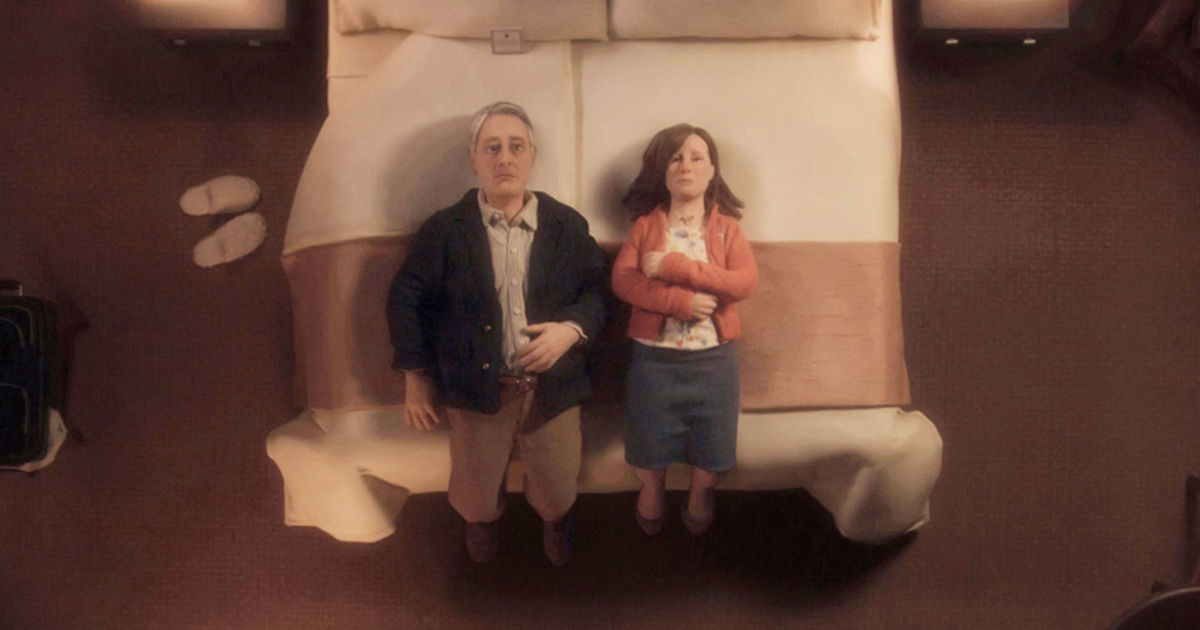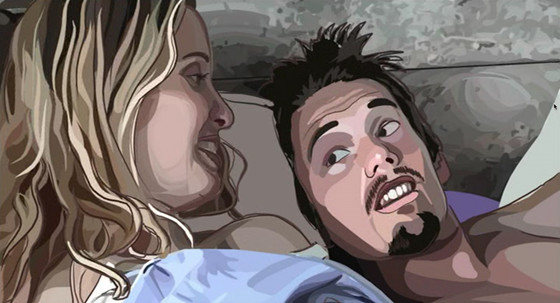5. Ringing Bell (1978, Masami Hata)

The opening of “Ringing Bell” is deceptively cheerful. A small lamb plays on a farm amongst other sheep. The lamb wears a bell around his neck so that his mother knows where he is at all times. The animals have cute voices and cartoon sound effects can be heard. The audience is totally unprepared for what comes next.
One night, while the sheep happily sleep, a wolf enters the barn and prepares to kill the little lamb, but, at the last minute, his mother throws herself in the way and is killed instead. The lamb, unable to comprehend why his mother was killed, swears to kill the wolf.
Eventually, he comes across the wolf in the mountains, realizing the only way he can kill the wolf is to become as strong as him. The lamb begs the wolf to train him, which the wolf agrees to, knowing the lamb intends to kill him. After years of training, the lamb becomes a vicious killer abandoning all morality.
“Ringing Bell’s” story deals with natural law, human nature cannot be changed without losing oneself in the process. The film also works as a cautionary tale about refusing to move on. The lamb becomes so obsessed with seeking revenge that he completely loses all humanity in the process and, naturally, ends in tragedy.
“Ringing Bell” isn’t a perfect film, the acting is rather bland and the ending feels a little heavy-handed, but it’s a fascinating allegory that tackles many complex themes, which is very impressive for a 47 minute, G-rated film.
4. It’s Such a Beautiful Day (2012, Don Hertzfeldt)

Don Hertzfeldt’s debut film is an odd film, to say the least. The film is a black comedy that looks into the psyche of Bill, a man slowly dying of a brain tumor. We get a glimpse of his mundane life (“Bill picked up his new medication, went home, and masturbated for seven hours”), see his various doctor’s appointments, meet his eccentric family and see his absurdist nightmares/hallucinations.
Throughout the film, Bill makes many philosophical musings. Bill spends the film coming to terms with his mortality while struggling with a failing memory. As the film progresses Bill’s health deteriorates and reality and imagination are impossible to distinguish, lines are repeated several times, several impossible happenings are observed and scene end abruptly.
“It’s Such a Beautiful Day” isn’t a film for everybody. The art style is simple, the humor is dark and the subject matter depressing, but for those who can look past that, it’s essential viewing.
3. A Scanner Darkly (2006, Richard Linklater)

This movie is Richard Linklater’s adaptation of Philip K. Dick’s classic sci-fi novel of the same name. Keanu Reeves stars as Bob Arctor, a narcotics agent assigned to insinuate himself into Anaheim’s drug scene and take down its main supplier, Donna Hawthorne (Winona Ryder, playing against type), however things go awry when Arctor befriends Hawthorne and her clients, the sociopathic Barris (Robert Downey Jr., in a fantastic comeback role) and Luckman, paranoid stoner (Woody Harrelson), and eventually becomes an addict himself.
Through his prolonged drug use, Arctor begins to lose his identity all the while his circle of friends begin to grow more paranoid and suspicious of each other.
The film asks us many thought provoking questions: Are humans really free? Is reality subjective? Should we trust our government?
The film is a perfect adaptation perfectly capturing the dark tone and intermittent humor of Dick’s novel while also showcasing fantastic performances from its ensemble cast. Highly recommended.
2. Anomalisa (2015, Charlie Kaufman/Duke Johnson)

Academy Award winning screenwriter Charlie Kaufman (Being John Malkovich, Adaptation, Eternal Sunshine of the Spotless Mind) has gained much acclaim over the years for his bizarre stories that usually focus on a person trying to find meaning in their life and combine existential themes with surrealist humor.
Kaufman’s latest film (a collaboration with stop-motion animator Duke Johnson) focuses on Michael Stone, a depressed self-help book author (David Thewlis), who views everybody as the same identical person (all but two character are voiced by Tom Noonan).
While promoting his book in Ohio, Michael stays at the Fregoli hotel (clever, huh?) during his stay he hears a female voice which belongs to Lisa, a friendly and insecure young woman (Jennifer Jason Leigh) with whom he has a one-night stand.
“Anomalisa” is about a lonely man’s desperate attempt to find happiness as he mentally deteriorates. Kaufman also examines happiness itself and opens up many questions: Are some people incapable of truly being happy? Is happiness temporary?
The plot is deceptively simple, but don’t let that fool you, like most of Kaufman’s filmography, “Anomalisa” has a plethora of themes and subtext that can barely be covered in a brief review. “Anomalisa” is a genius film that should be seen (perhaps multiple times) rather than described.
1. Waking Life (2001, Richard Linklater)

Richard Linklater is no stranger to existential themes. From his earliest films, Linklater’s characters have faced confusion in the face of an absurd world. However, it wasn’t until 2001’s “Waking Life” that Linklater really examined that world.
This surrealist pseudo-documentary focuses on a young man (Wiley Wiggins) living in a dream he is unable to wake from. As the man shuffles through the dream, he has discussions with the other inhabitants of the dream (some played by well-known figures including famed filmmaker Steven Soderbergh, controversial conspiracy theorist Alex Jones and Ethan Hawke and Julie Delpy reprising their roles from Linklater’s earlier “Before Sunrise”), the topics of these discussions include the nature of reality, free will and the meaning of life (or lack thereof).
“Waking Life” provides an unbiased view of its subjects and their viewpoints. Alex Jones’ harsh, and often controversial, opinions are treated with as much respect as famed philosopher Timothy Levitch’s. Richard Linklater’s film is an audacious experiment that never feels heavy-handed in its subject matter.
Author Bio: Raine is a cinephile and aspiring filmmaker living in St. John’s, Newfoundland and Labrador. He enjoys films from all countries, genres and eras, but is especially fond of the New German Cinema films of the 70s.